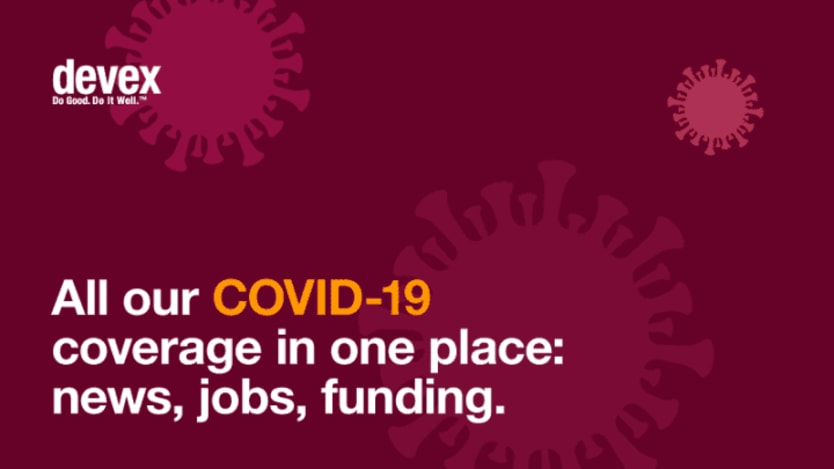
BRUSSELS — The coronavirus crisis should prompt an increase in the European Union’s long-term aid spending, the bloc’s humanitarian chief said Tuesday.
In the twilight of the 2014-2020 budget period, all eyes are on April 29, when the European Commission will announce a fresh proposal for the long-term budget covering 2021-2027, which national leaders were still debating when the pandemic hit.
COVID-19 — a timeline of the coronavirus outbreak
Follow the latest developments on the new coronavirus that causes COVID-19.
Janez Lenarčič, EU commissioner for crisis management, told the European Parliament’s development committee in a virtual meeting Tuesday that, given the lasting impact of COVID-19, “we need to rethink” the next seven-year budget. “We believe that it should be substantially revised. The commission has started its work on this. And I would be grateful … if this Parliament would support boosting the humanitarian aid budget.”
In mid-2018, the commission proposed spending €11 billion (about $13 billion at the time) on humanitarian aid between 2021 and 2027, up from €8.5 billion for 2014-2020. With most of the money for the current period already gone, Lenarčič on Tuesday told members of the European Parliament that the humanitarian part of the EU’s emergency COVID response is currently €199 million, a large portion of which will go to Africa. And he said work was underway to tap “substantial additional funding” from the Emergency Aid Reserve. Some €30 million from the emergency aid reserve has already been used this year, complemented with €100 million for post-earthquake reconstruction in Albania and €45 million for repatriating EU nationals during the pandemic from the budget margins.
On the development side, the European Commission and European Investment Bank redirected €15.6 billion in existing funds to tackle COVID-19. “I wish we would have fresh money,” Jutta Urpilainen, the commissioner for international partnerships who is in charge of EU development policy, told MEPs Tuesday. “I wish we would have additional funding to provide our partner countries, but there is [none]. There is [none] at the moment.”
When combined with contributions from the European Bank for Reconstruction and Development, some EU member states — especially France and Germany — and a commission proposal for a €3 billion macro financial assistance package to 10 nearby countries, Brussels now claims a total COVID-19 response from “Team Europe” of more than €23 billion.
EU heads of state will meet virtually Thursday, though they are expected to focus on the COVID-19 response inside the bloc.
Ahead of the April 29 budget announcement, Alexei Jones, senior policy officer at the European Centre for Development Policy Management think tank, told Devex that he did not expect significant changes to the commission’s existing proposal for aid spending over the 2021-2027 period.
“I wish we would have additional funding to provide our partner countries, but there is [none]. There is [none] at the moment.”
— Jutta Urpilainen, European commissioner for international partnerships“The so-called post-COVID-19 Marshall Plan is essentially about front-loading investment and economic recovery in the EU,” Jones said. “But the external dimension [for countries outside the EU] should be part and parcel of this recovery plan, and future negotiations on the [2021-2027 budget] must ensure an equal level of ambition on EU resources for external action.”
Brandon Locke, policy and advocacy manager at the ONE Campaign, told Devex that the commission should raise its external spending to recognize the strategic importance of “long-term investments in health and social protection.”
Lenarčič and Urpilainen also reiterated EU calls for debt relief for lower-income countries. Urpilainen said the topic featured in almost all of the more than 30 recent exchanges with leaders of African governments and multilateral organizations. Lenarčič said that recent arrangements made to suspend poor countries’ debt repayments until the end of the year are “a step in the right direction” but that “from the humanitarian perspective, it would be desirable if even more would be done, in the sense of debt relief.”
Visit our dedicated COVID-19 page for news, job opportunities, and funding insights.

Search for articles
Most Read
- 1
- 2
- 3
- 4
- 5








